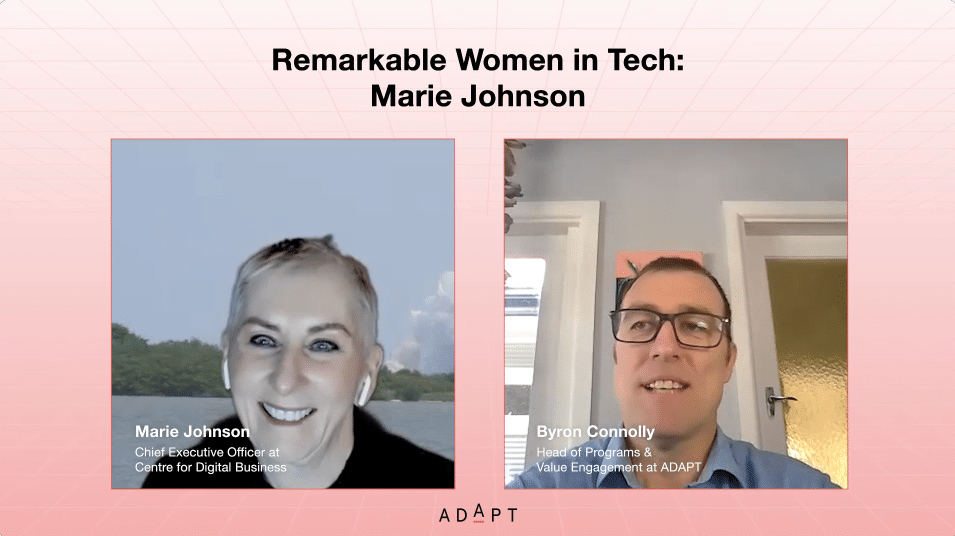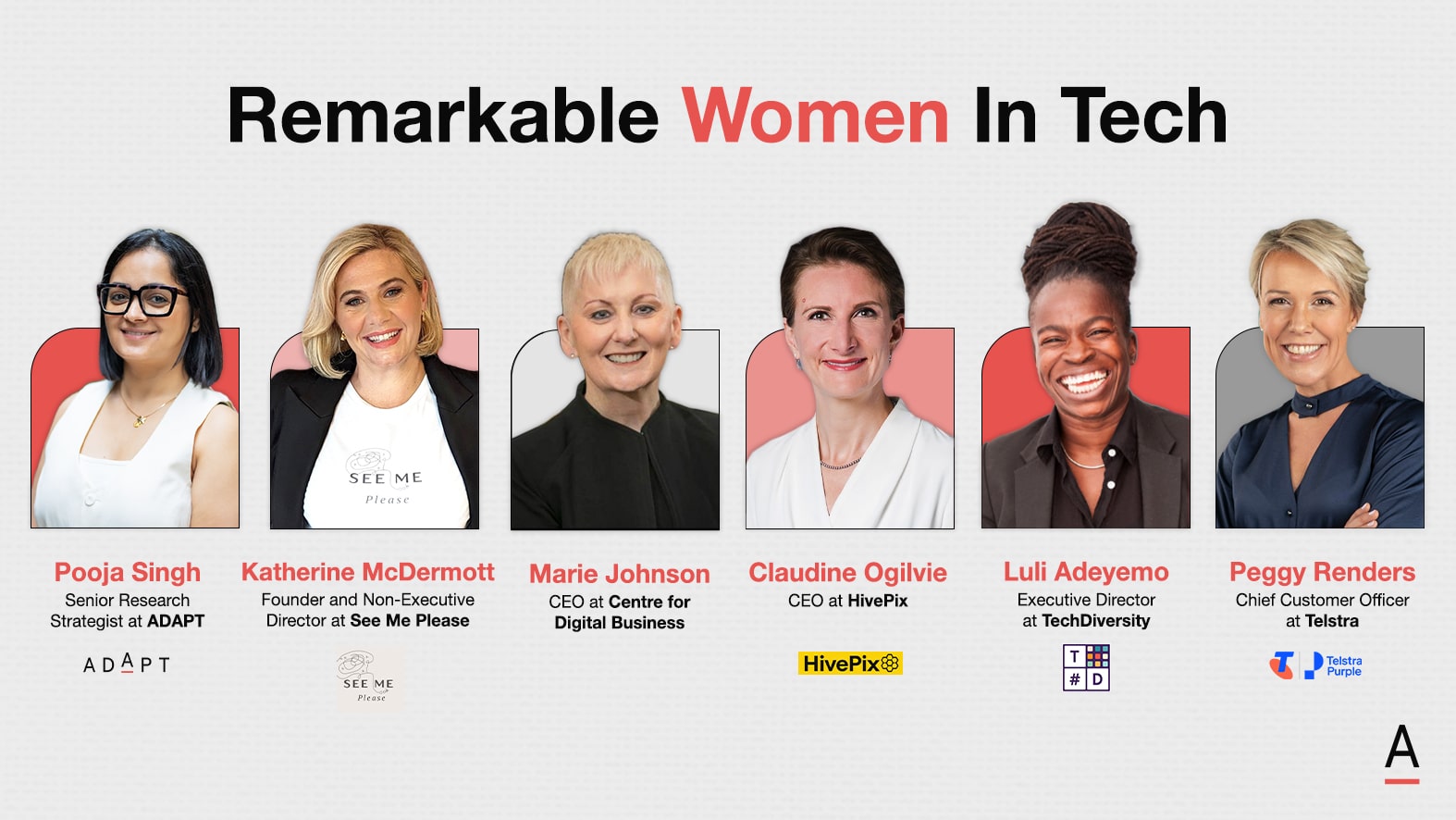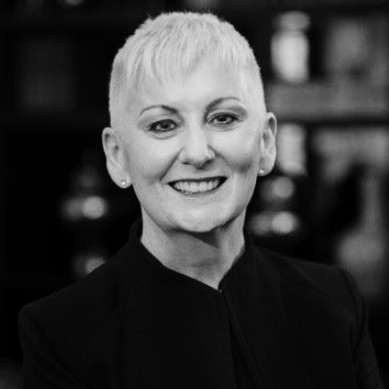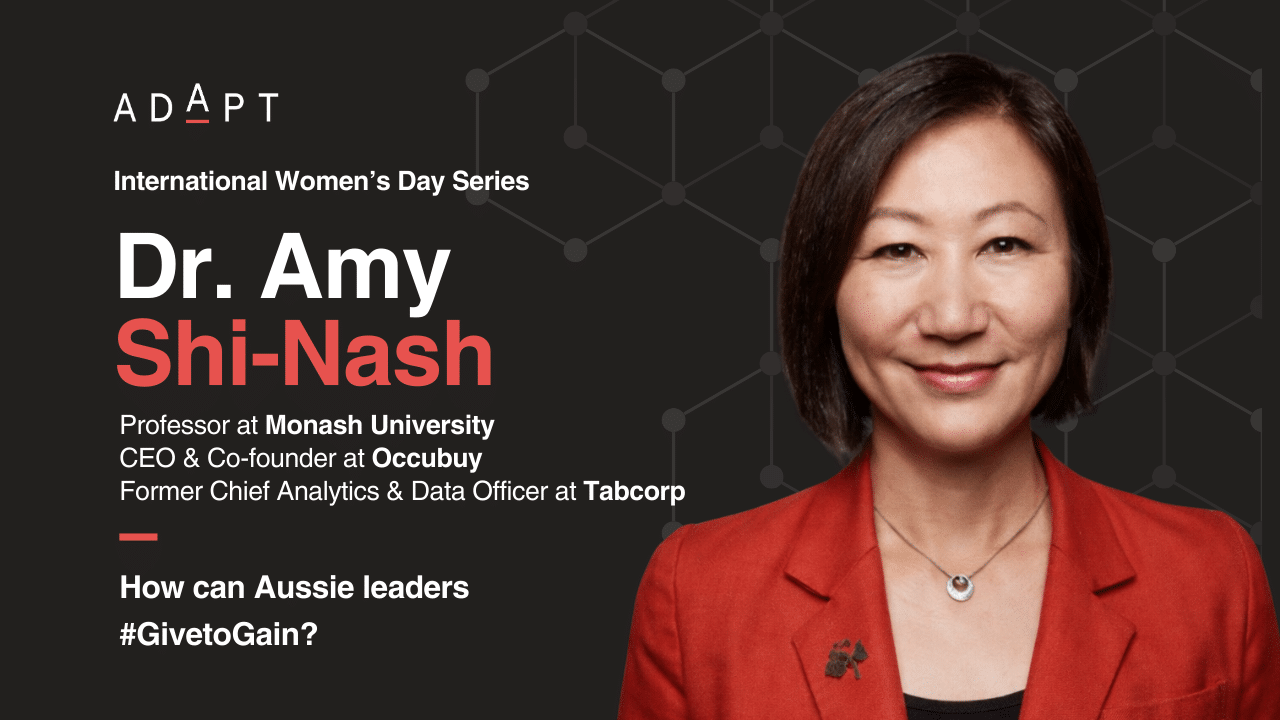Marie Johnson: A Tech Trailblazer’s Journey Through Complexity, Innovation, and Inclusion
In celebration of International Women's Day, we're highlighting Marie Johnson's remarkable journey through the tech industry—a testament to overcoming adversity and spearheading innovation.In celebration of International Women’s Day, we’re highlighting Marie Johnson’s remarkable journey through the tech industry—a testament to overcoming adversity and spearheading innovation.
From her early days at the National Crime Authority (NCA) to leading tech advancements, ADAPT recognises Marie’s story as one of resilience, effective leadership, and commitment to #InspireInclusion.
Parcel bomb a baptism of fire
Tech industry veteran, Marie Johnson, was always fascinated by technology. One of her earliest roles in the 1990s was as a Melbourne-based intelligent unit team leader at the now defunct National Crime Authority (NCA), which investigated tax evasion and organised crime.
In her interview with ADAPT for International Women’s Day (IWD), Marie recalls the day in 1994 when South Australian drug trafficker, Domenic Perre, sent a parcel bomb to the Adelaide NCA office of Detective Sargeant Geoffrey Bowen. Sadly, Bowen was killed in a revenge crime against his investigation into Perre’s family drug business.
“Because I was doing the intel, it was a really intense period of time, not knowing if we could be next,” she tells ADAPT.
It was a moment that taught Marie about the value of leadership and decision-making in complex environments – a world away from the boredom that she was feeling while studying property law.
Marie decided on a new path and in 1995, she discontinued law and started an MBA course at the Melbourne Business School, which had a focus on technology, e-commerce and innovation.
An issue of visibility and storytelling
In the early 2000s, women had seats at the tables of several Australian public service agencies. It was also a time when the digital infrastructure of government was being put in place and there were “no stuff ups,” says Marie.
It was a gathering of “immensely brilliant women” with qualifications in many areas, she says.
But everything changed with the Gershon review into the government’s use of technology, which was released in 2008.
“This was a doctrine that outsourcing [government IT] would be better and homogeneity through outsourcing would be better. With that outsourcing and insourcing of consulting services, this changed and around the table now, you see pretty much all men,” she says.
The problem is a lack of a narrative, of storytelling around women’s achievements in IT and Australia’s education system needs to play a role, says Marie.
Women need to see themselves in a diversity of roles rather than what might be presented as “boring backroom enterprise IT situations.”
Marie also calls on both men and women to improve cultures in their workplaces to speak out and help stamp out poor behaviour and harassment.
Strength in neurodiversity
Marie rightly points out that neurodiverse teams bring about change. During her two-and-a-half-year stint at the National Disability Insurance Agency (NDIA), Marie worked with people who had physical and intellectual disabilities.
“What came from that was this incredible diversity of thinking and experience…it was the diversity that created breakthroughs,” she says.
A self-described divergent thinker, Marie is an advocate for people with disabilities. Her new book, ‘Nadia, Politics, Bigotry and Artificial Intelligence’, is as an explosive story of Nadia, the world’s first AI-powered digital human created for people with disability.
Marie’s book discusses what occurred behind the scenes of the Australian government’s catastrophic Robodebt scheme and how culture in that environment impacted everything.
“It was the Robodebt culture that caused Nadia to be shut down. What has been written in the media in the time since has not been the complete story,” she says.
Marie Johnson’s contributions and advocacy work remind us of the importance of leadership in driving cultural change.
Her journey from intelligence to tech innovation serves as an inspiration for aspiring technologists and a call to action for the industry to continue striving for a more inclusive and diverse future.
Watch other Remarkable Women in Tech – Peggy Renders, Katie McDermott, Luli Adeyemo, Claudine Ogilvie, and Pooja Singh’s full interviews or our compilation of their stories.































